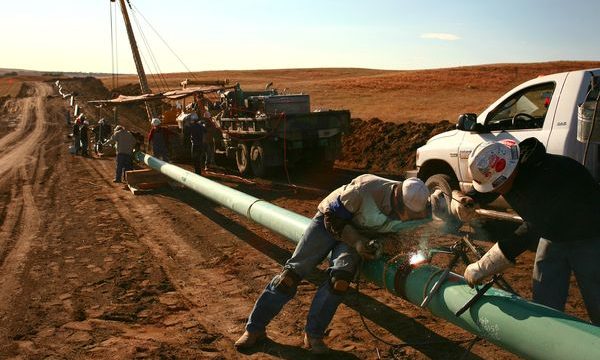Doug Goehring: Sound Bites Versus Smart Regulation

Often what sounds good, is often anything but easy.
Such is the case of Ryan Taylor’s recent column. His folksy, ah-shucks language may sound appealing and his solutions easy, but the realities of regulating our state’s two largest industries are seldom so simple.
Take for example, Taylor’s recent attempt to make political hay with the very unfortunate brine spill at Mandaree. Taylor used this mishap to promote his “landowner bill of rights” and its mandate that pipelines use flow meters and pressure cutoff switches.
In his hurry to rush to judgment, Taylor forgets to check his facts. The Mandaree spill happened on tribal lands where the state has very little regulatory authority. More importantly, the pipeline responsible for this spill was equipped with multiple flow meters and pressure cutoff switches, which highlights what I have said all along. These technologies are not very effective methods of preventing or limiting the impact of spills.
Another good example of his feel good politics that, in reality, is bad policy is his desire to mandate that all wells must be at least ¼ mile from occupied dwellings. It may sound good, but sometimes moving a well farther away from established roads actually does more harm to the land than necessary. Rather than Taylor’s one-size fits all solution, I want each permit evaluated individually and all the facts considered before deciding where to place a well site.
As for the rest of Taylor’s landowner’s bill of rights, we already require reclamation of all land when oil companies are done. We already use the Ag Mediation Service to mediate disputes between landowners and energy companies. And debate of the issues concerning landowners is already done in full transparency at open public meetings of the North Dakota Industrial Commission, not in smoke filled rooms as his fertile imagination would have you believe.
No one wants spills to occur. Not the pipeline company, not the state and not the landowner. But unfortunately, spills will happen. As regulators, our job is to make sure all reasonable safeguards are taken to prevent spills and, when spills do occur, that they are cleaned-up and the land returned to productivity.
That is exactly what we are doing. We have employed best practices and technologies in the regulation of oil, gas and saltwater gathering pipelines. In fact, we were the first state in the nation to regulate saltwater gathering lines and our rules have now been adopted by other states. Even U.S. Secretary of the Interior Jewell called our oil and gas rules “sophisticated” compared to other states.
Let’s be perfectly clear, the North Dakota Industrial Commission makes companies thoroughly clean-up spills. The only exception is where the clean-up would do more damage than good. And if the company goes out-of-business before the clean-up is done, the state assumes the responsibility for the clean-up of the site and we have set aside millions of dollars to do so. To date, over 99% of all spills reported since I took office are in the process of being cleaned-up or have been cleaned-up.
I have been a life-long farmer in North Dakota. No one takes the responsibility of preserving our land more seriously than I do. Unlike my opponent Ryan Taylor, I will not drive a wedge between agriculture and energy development in this state to further my political ambitions. These two industries can both thrive if we apply smart, common sense regulations to their development and management.
While my science-based approach to energy and ag regulation does not lend itself to folksy sound bites, it is the right thing to do for the people of North Dakota.




